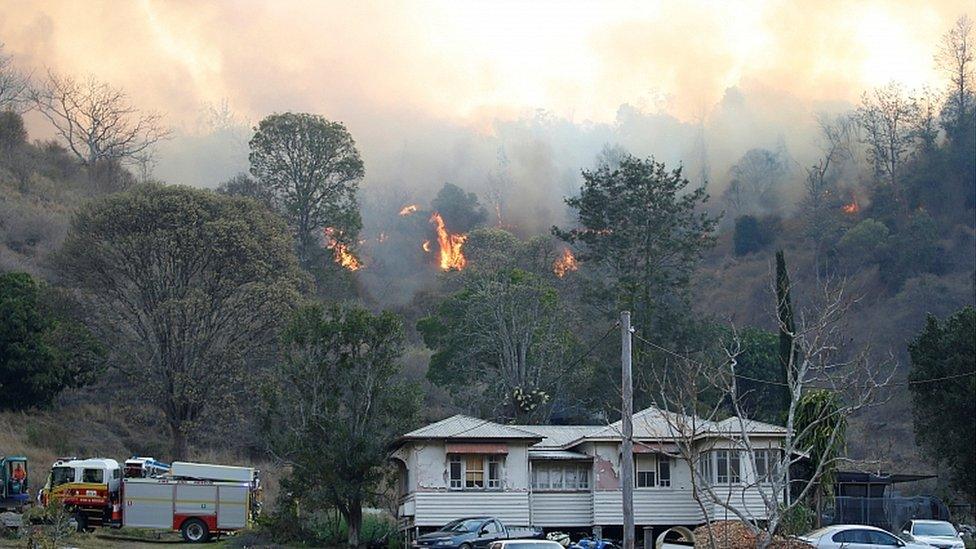Australia bushfires: Death toll rises as communities remain on alert
- Published
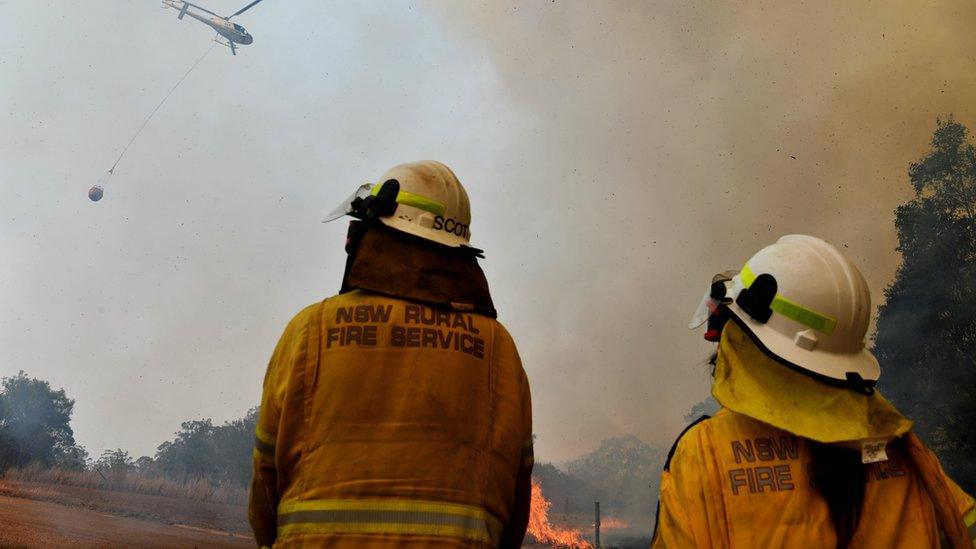
Fire crews are working to contain the fires amid cooler conditions
Australian authorities say a fourth person has died in a week of massive bushfires on the nation's east coast.
The 58-year-old man's body was found in northern New South Wales (NSW) on Thursday, days after a fire ripped through the region.
Crews are still battling over 120 fires in NSW and Queensland, but locals in Western Australia have now been warned of extremely dangerous conditions.
Police charged a 16-year-old boy with deliberately starting a damaging fire.
The alleged arson had destroyed 14 homes around the town of Yeppoon, 650km (400 miles) north of Brisbane, Queensland Police said.
Fire chiefs have warned the worst of the summer is "still ahead of us", after expressing alarm at the scale and severity of the spring bushfires.
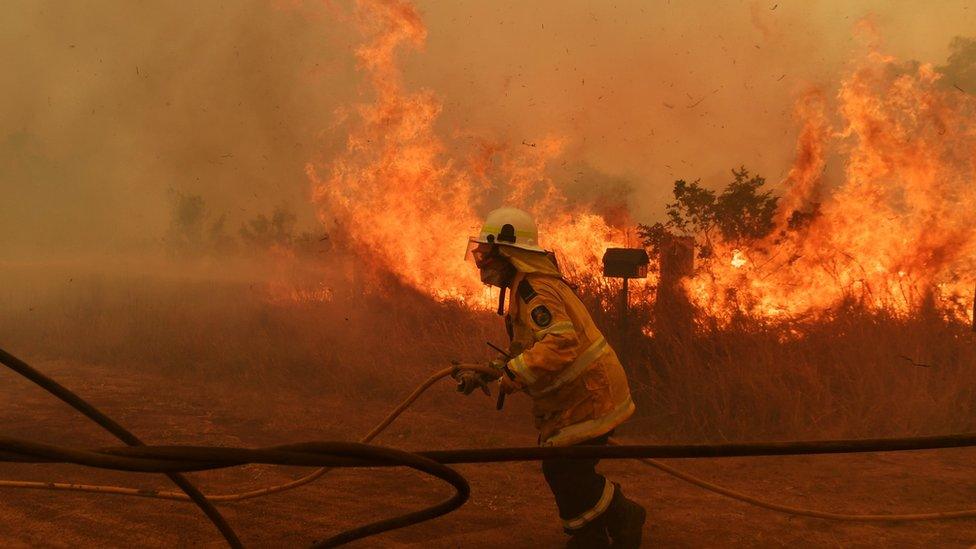
Firefighters battle a blaze at Hillside in New South Wales
On Thursday, a coalition of former fire chiefs accused the government of ignoring their warnings about climate change and its potential to exacerbate fire emergencies.
"Things aren't going to get better if our elected leaders don't face this issue head on, and deliver the emissions reductions we need," said Mike Brown, a former chief fire officer in Tasmania.
Who were the victims?
Since Friday, four people have died and at least 300 homes have been destroyed or damaged by fires in NSW.
Police said the latest victim was found in burnt-out bushland near Kempsey, 400km north of Sydney. He was yet to be identified.
The discovery follows the deaths of Vivian Chaplain, 69, Julie Fletcher, 63, and George Nole, whose age is unknown. They were found in separate locations in rural NSW.
What's happening on the east coast?
Cooler conditions are bringing some assistance to firefighters, but many communities remain on alert.
In Queensland, crews are working to contain over 70 fires. Thousands of residents were warned to leave or defend their homes when blazes escalated on Wednesday, prompting emergency warnings.
Further south in NSW, officials said the fight was "not over yet" due to forecasts of rising temperatures ahead of the weekend.
"Even in these pretty benign conditions we're seeing quite a lot of aggressive fire behaviour simply because it's so dry," said Rural Fire Service Deputy Commissioner Rob Rogers.
More than one million hectares have been burnt across the state since September. The greater Sydney area was issued with its first ever "catastrophic" fire warning on Tuesday, with officials expressing relief no lives were lost on that day.
Sydney resident in Australia bushfire: 'I said goodbye to my house'
Exhausted firefighters have received help from counterparts from other states and New Zealand.
What's happening in Western Australia?
Several fires escalated across the state's coast on Wednesday, with two blazes threatening homes in the port city of Geraldton.
Officials warned of potentially "catastrophic" conditions in one region. About a dozen blazes remain burning in the region.


Is this linked to climate change?
Scientists and experts warn that Australia's fire season has grown longer and more intense due to climate change.
Officials have confirmed that 2018 and 2017 were Australia's third and fourth-hottest years on record respectively, and last year the nation experienced its warmest summer on record.
The Bureau of Meteorology's State of the Climate 2018 report said climate change had led to an increase in extreme heat events, external and raised the severity of other natural disasters, such as drought.
Even if global temperatures are contained to a 2C rise above pre-industrial levels - a limit set out in the landmark Paris accord, agreed by 188 nations in 2015 - scientists believe the country is facing a dangerous new normal.
Last year, a UN report said Australia was falling short in efforts to cut its CO2 emissions.
Prime Minister Scott Morrison has declined to acknowledge climate change while the fires are raging. Other government ministers have also been criticised this week for dismissing climate change concerns.

Have you been affected by the bushfires? Share your experiences by emailing haveyoursay@bbc.co.uk, external.
Please include a contact number if you are willing to speak to a BBC journalist. You can also contact us in the following ways:
WhatsApp: +44 7756 165803, external
Tweet: @BBC_HaveYourSay, external
Text an SMS or MMS to 61124 or +44 7624 800 100
Please read our terms of use and privacy policy
- Published13 November 2019
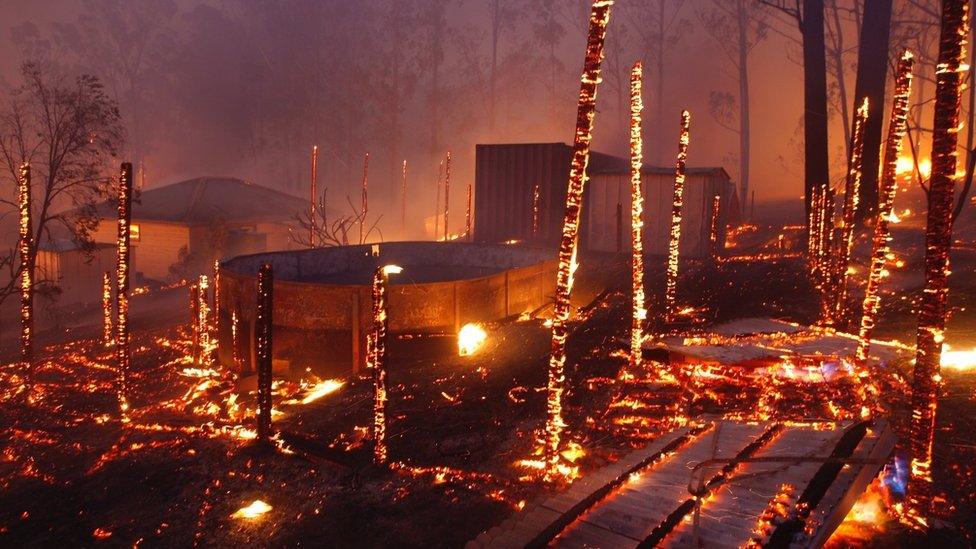
- Published11 November 2019
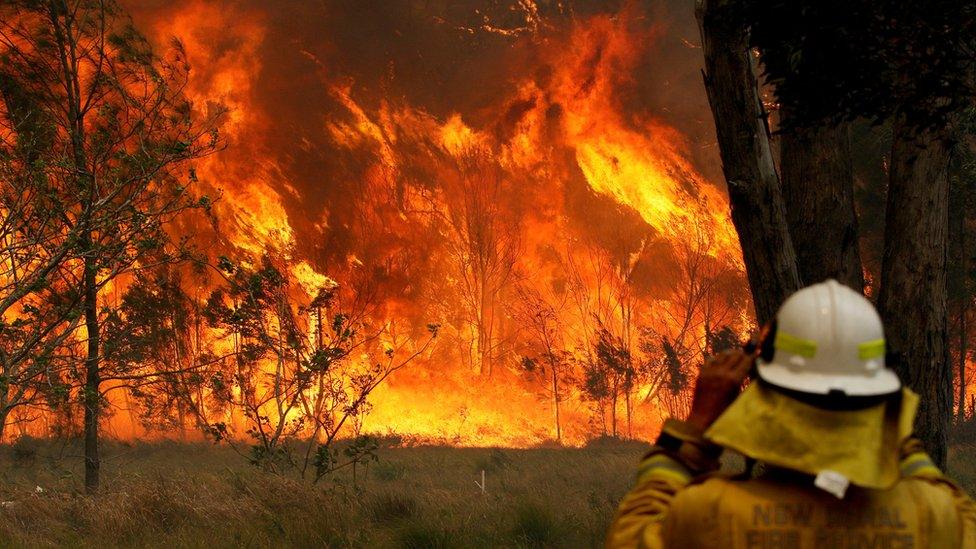
- Published8 November 2019
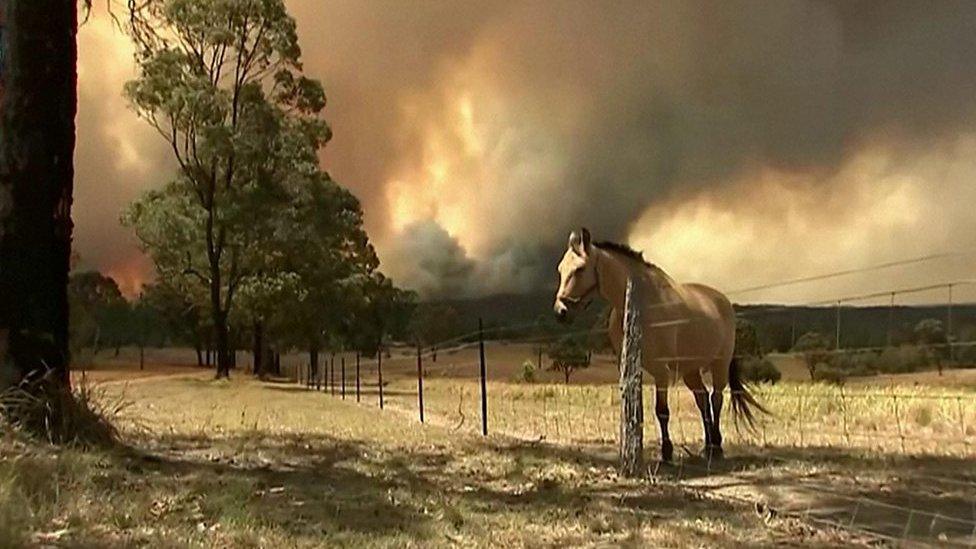
- Published24 April 2019
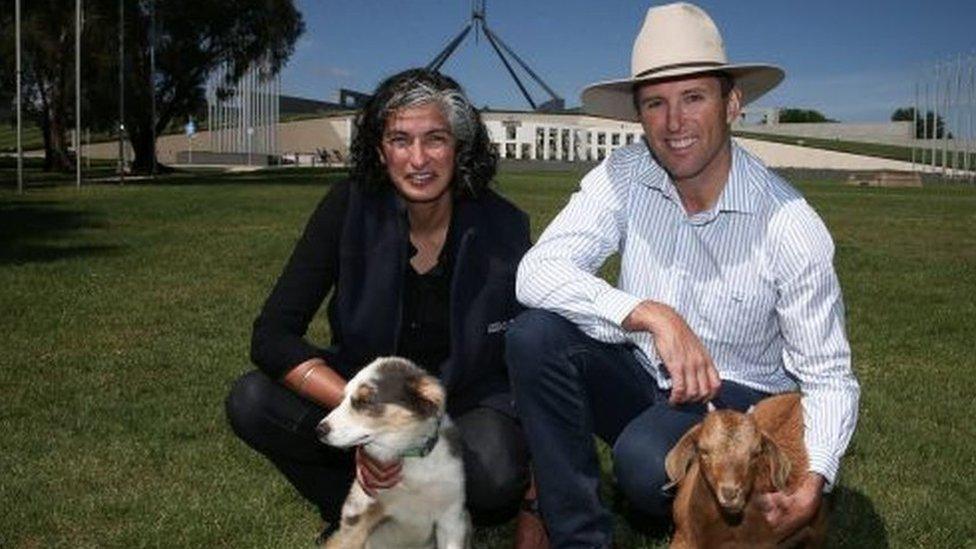
- Published9 October 2019
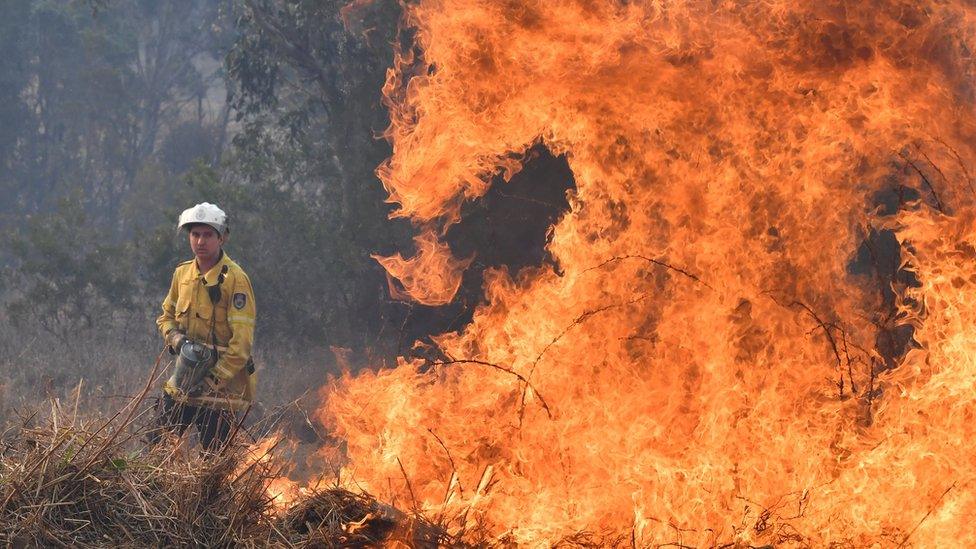
- Published12 September 2019
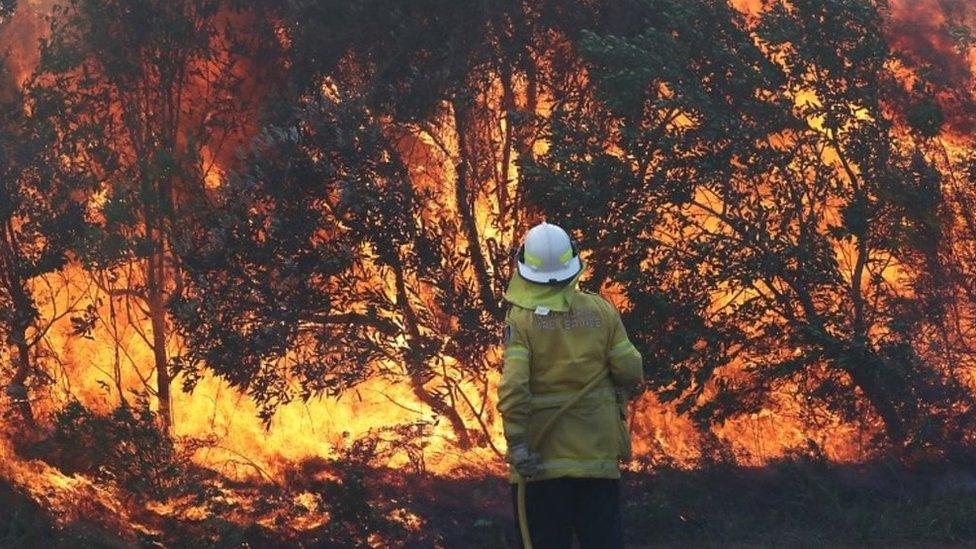
- Published8 September 2019
